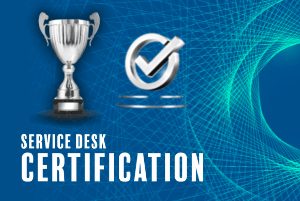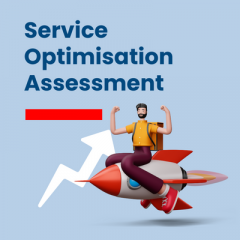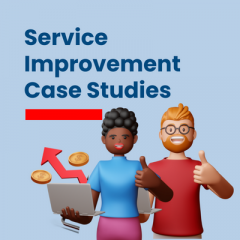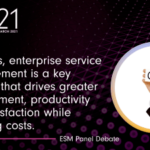
Gillian Jones-Williams, Managing Director, Emerge Consultancy. SD21 speaker
Gillian Jones-Williams is Managing Director of Emerge Consultancy Limited which she founded over 25 years ago. She is also an author, motivational speaker, Master Accredited Coach and founder of the trademarked Women’s Development Programme RISE which she delivers in the UK and the Middle East.
Is Imposter Syndrome real?
This week I was privileged to learn I had made the list in the #Ialso Top 100 UK Female Entrepreneurs for 2020 which was a massive privilege, and a big surprise to me.
I have a secret that I feel uncomfortable revealing, but it’s a secret that I share with such a huge number of women (and men) that I’ve now learned to feel comfortable about revealing and discussing it. For a very long time after I started my business, even though we were running over in excess of £1m in the first seven years, I felt inferior, inadequate – I didn’t feel that I deserved my success. Considering my job was to stand up in front of other people and teach them best practise it made me feel a complete fraud. My childhood had been very turbulent and so I ended up leaving school and not going to college or university, so I felt that everyone in the room was more educated than me, knew more about training and development, and was far more skilled.
It didn’t matter that my clients loved my work, kept asking me to work on other projects and that my feedback was outstanding – I still doubted myself. So, I was delighted when I heard the term Imposter Syndrome and realised it was more normal that I ever thought. In fact, as I started to coach more and more senior women and realised that they shared my secret, it made me realise how important it was that, in order to be the best we can be, we work on this and find a way to stop it affecting us.
So, what is Imposter Syndrome?
Imposter Syndrome was first described by psychologists Suzanne Imes, PhD, and Pauline Rose Clance, PhD, in the 1970s, and it’s now recognised that it occurs frequently among high achievers who are unable to accept feedback and success. Often these people will describe their success as lucky but also state that they keep waiting for “someone to catch them out”.
So how does it manifest itself; well sadly it can affect sufferers on a daily basis. For example, you get the promotion you want, or invited on a high profile and the narrative that you create around it is “they must have been desperate for people”. Or perhaps you win a big contract, but you put it down to luck. You do a great presentation, but you shrug off the feedback, highlighting the one slide that you hesitated over. Or, as you chair an important meeting you’re looking over your shoulder waiting for someone to come in and ask you what you think you’re doing – even though you’re doing a fabulous job of it!
Imposter Syndrome is an experience that occurs in an individual and therefore isn’t an officially diagnosed mental condition i.e. recognised by DSM (Diagnostic and Statistical Manual of Mental Disorders (DSM), but to those who experience it, it’s incredibly real and if it isn’t dealt with sufferers can also end up having feelings of anxiety and potentially depression, particularly when they feel they’re competing with high achievers.
Originally, Imes and Clance felt that imposter phenomenon was unique to women but further research has revealed that men can also suffer from it.
Where does it come from? Potentially from childhood, i.e. if you had a parent who put a lot of pressure on achievement, it could be comments in the workplace driven through clumsy unconscious bias which makes you feel ‘different’ to typical high achievers and certainly the syndrome can be more common among minorities – particularly if they feel they’ve been appointed on a sympathy vote, or to change the balance in a department. Not being part of the “in crowd” at work can add to feelings of inadequacy. Sometimes though, the Imposter Syndrome is self-created, particularly in people who are perfectionists. Sadly, the situation can be perpetuated by faulty internal dialogue – they’re incredibly anxious to make the project perfect, and when they succeed, they believe that all the self-torture contributed to their success and therefore link the two together.
So, is there anything you can do to change how you feel internally?
Thankfully yes, and on our RISE Women’s Development programme we spend a lot of time working on these techniques. Below are just a few things that could help you.
Recognise and celebrate your strengths. Get some evidence of what you’re incredibly good at and learn to accept this positive feedback and talk proudly about your strengths.
Keep track of what you do well. Keep a folder of successes, congratulation emails, awards, and comments and review them whenever you have a wobble! Writing down lists of your achievements, skills, and successes to demonstrate that you really do have concrete value to share with the world.
Recognise that perfection is impossible. No one is perfect, ever! Even the most ‘perfect’ performance can always be improved upon. Try to accept 80 or 90% is good enough and doing a task well enough, is probably more perfect than how anyone else would do it!
Reprogram your thinking. You’ve created these neural pathways and you can create new ones. Would you talk to your friends, the way you’re speaking to yourself? Of course not!
Talk to others. This syndrome often ‘flies under the radar’ but the more you talk to other people and find how they feel the easier it becomes. Finding a safe peer group to talk to can help considerably. This is one of the things that women on the RISE programme find really helpful.
Sadly, the limiting beliefs that contribute to Imposter Syndrome can mean that people don’t have the courage to go after new roles or projects, or increase their visibility. Which means that they may miss some great opportunities in the future.
And most importantly remember that it was you who created these neural pathways and therefore you can change and rewrite them. How you felt and behaved in the past does not have to be the guide of how you feel and behave in the future so start reprogramming. Notice your achievements and regularly tell yourself how incredible you are. Instead of beating yourself up over things that don’t quite go the way you’d hoped, use the experience to extract lessons to make it even better in the future. And remember, you got to wherever you did through your talent, so enjoy it!
You can also find out more about Gillian Jones-Williams and her motivational speaking at our annual SDI21Live & Interactive Conference in March 2021!



























